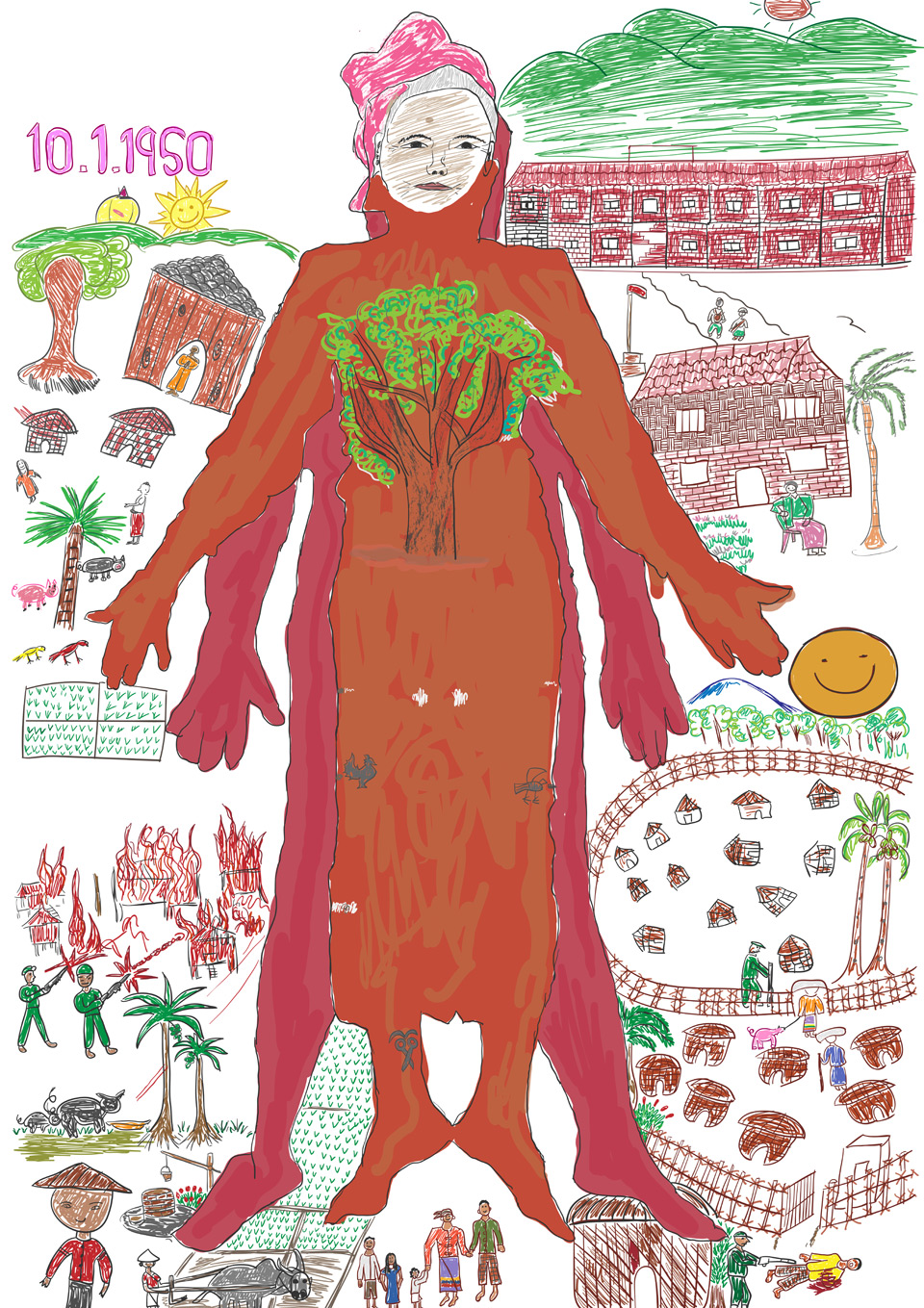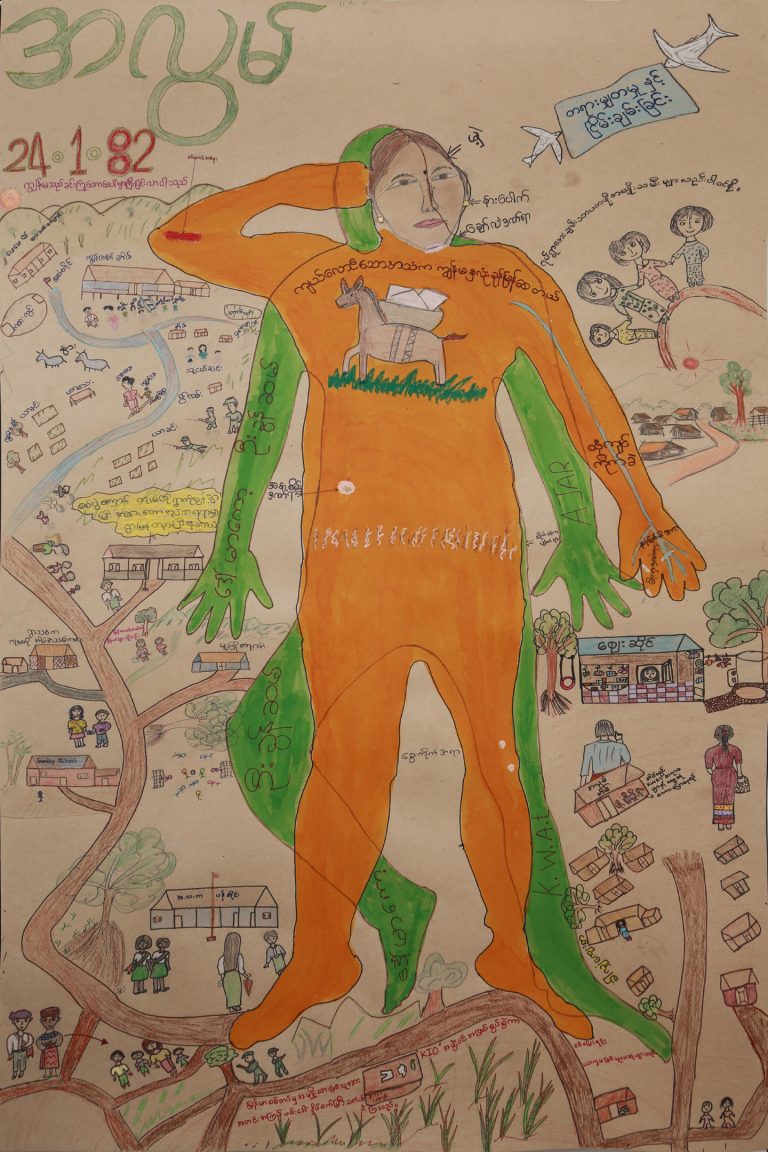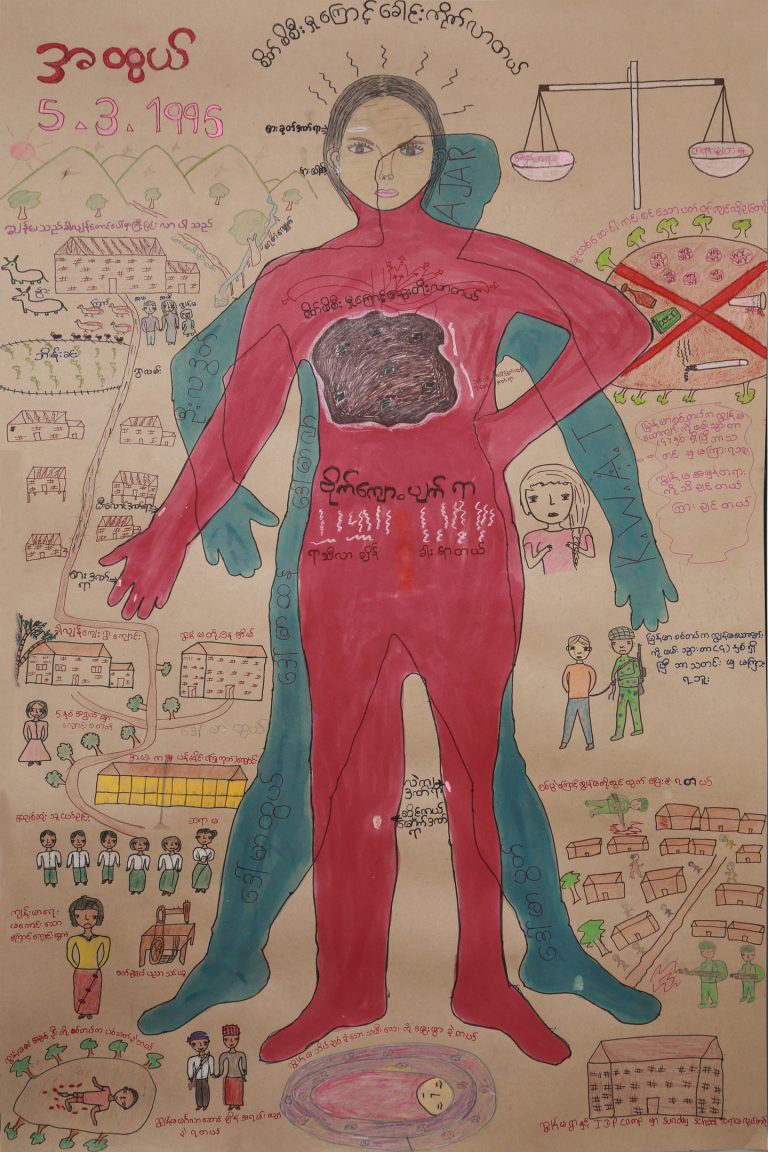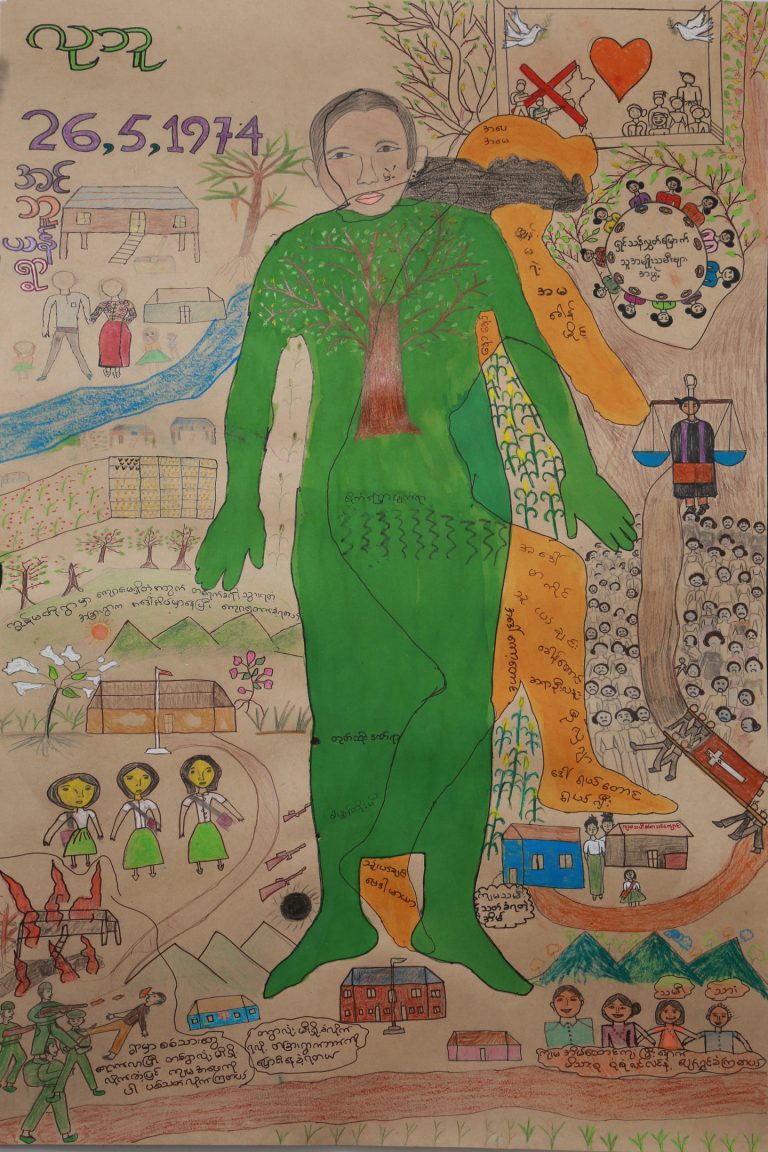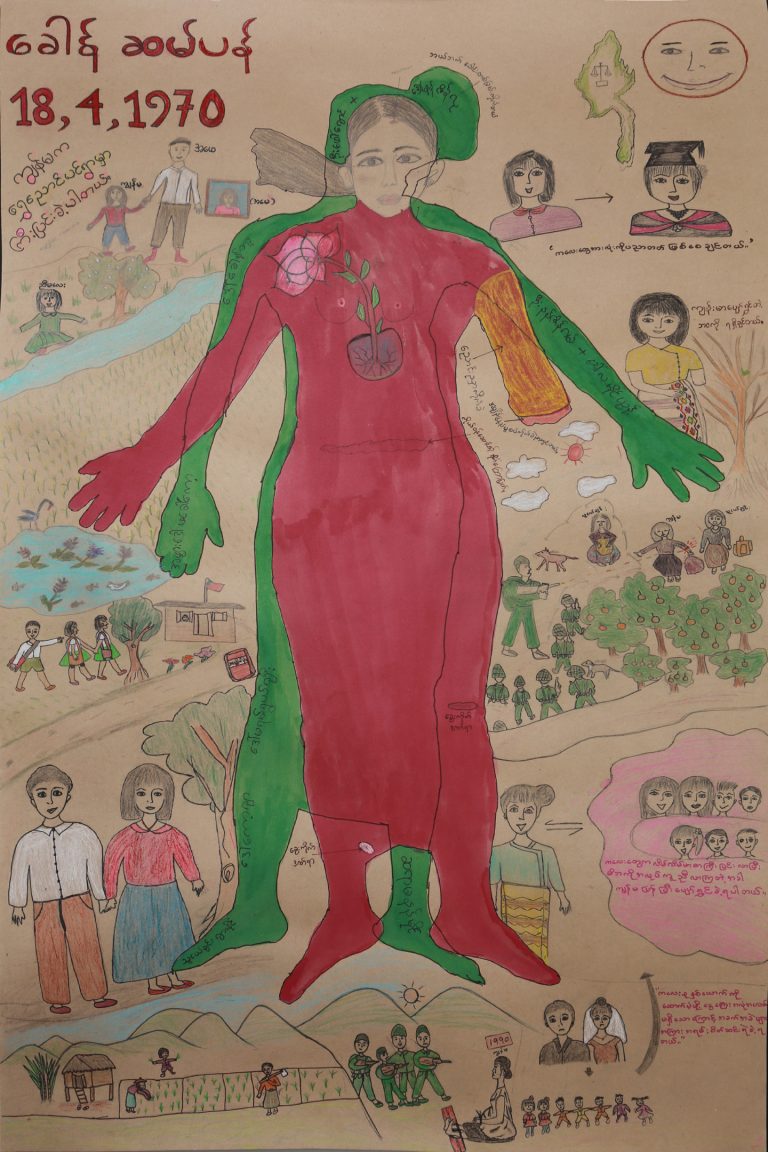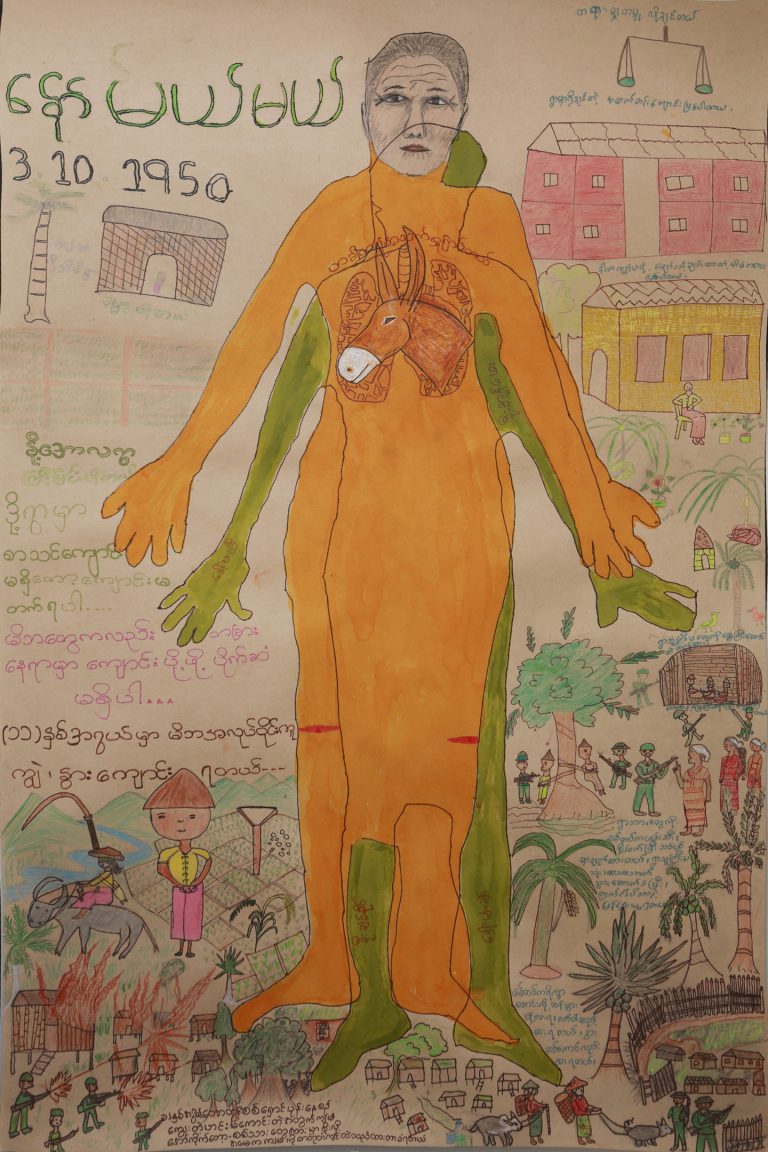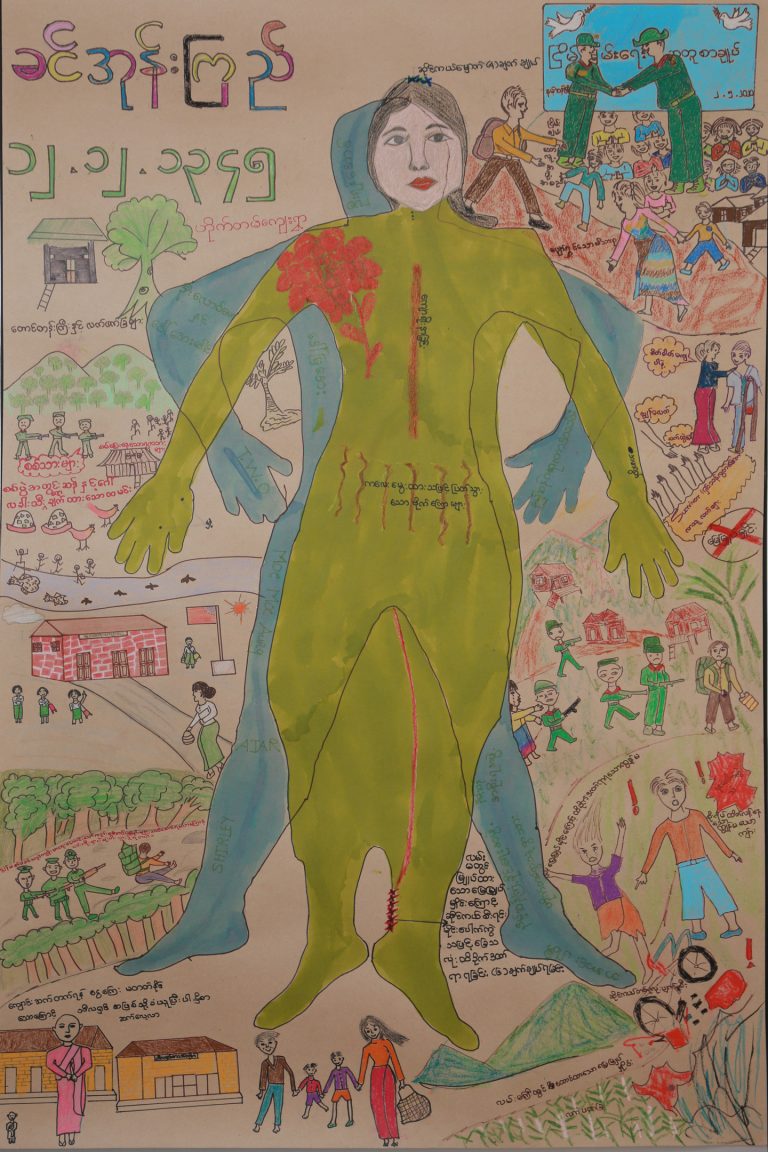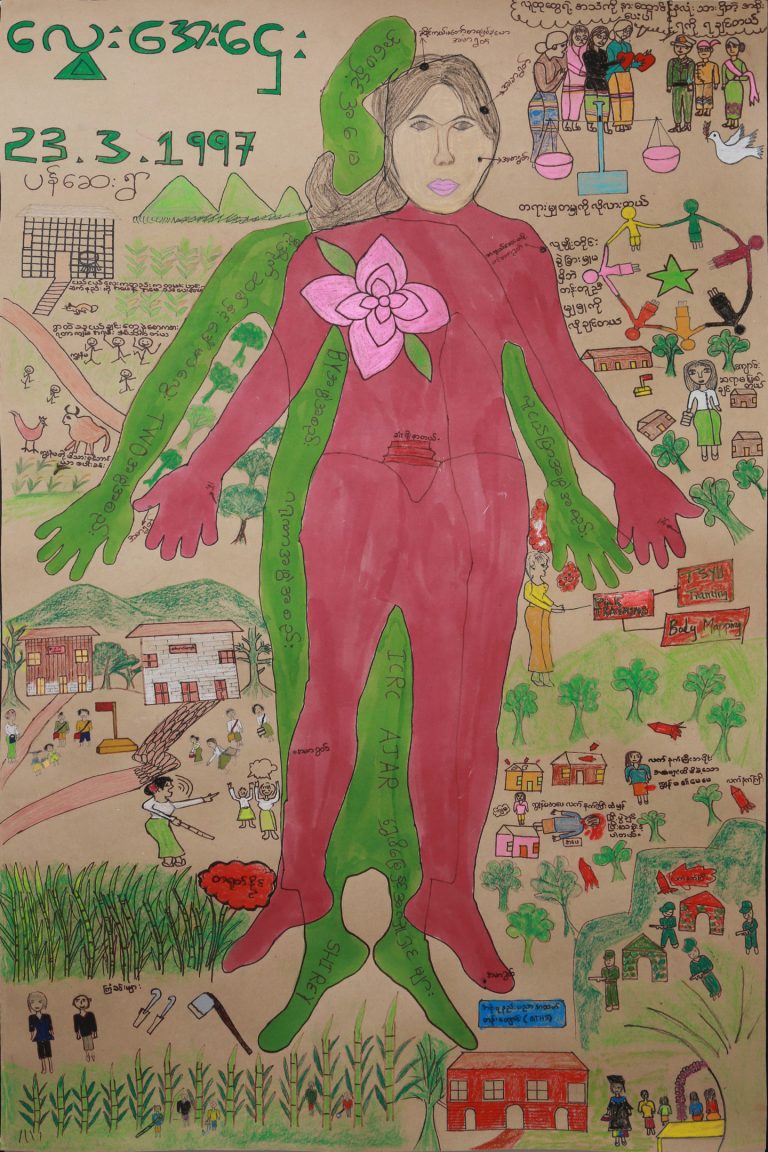Childhood
Naw Yi Aye grew up in a remote village in Karen State as the third of five children. She remembers happy times in her childhood singing and playing in the village with her friends. Her parents passed away when she was four years old, and she was heartbroken when her youngest sister was adopted by another family.

